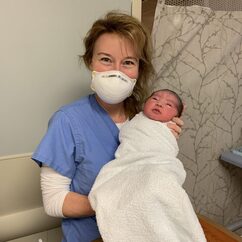 Top OBGYN give you tips to choose the right OBGYN for you A top OBGYN in Alpharetta and Atlanta GA is there for you whether you need birth control advice, preventative screening, help with a menopausal issue, or pregnancy care. You will need an OBGYN who can respond to your needs and someone who is a good fit to address these needs. It can be a challenge to navigate the healthcare system and find an OBGYN that you can rely on when it comes to your health preferences and needs. However, it is essential to find an OBGYN with who you are comfortable with and who has the expertise that you need to stay healthy. Here are some recommendations to keep in mind when looking for the right doctor. How to find an OBGYN If you are looking for an OBGYN, you can start your search by asking any of your current healthcare providers for any recommendations or you can also ask your relatives and friends who are working in healthcare in the area or who have recently had a baby. Understand your own needs All women will be at different stages of their lives, this will mean that you should concentrate on your own challenges, needs, and time of life. Are you nearing menopause, thinking about having your first child, or experiencing lengthy periods or unexpected pain? Or, maybe you are just looking to have annual exams. It is also a possibility that you have just moved to a new city and have no frame of reference. If this is the case, your computer can give you a plethora of information. Start by looking at a doctor’s particular field of specialty. Does their specialty fit your needs? Make an appointment After finding a doctor that matches your needs, schedule an appointment. If it has been some time since you have had an annual exam or a Pap smear, make a new patient appointment. An annual appointment is a great way to get a good feel for a doctor and their communication, style, staff, and office environment. You can also schedule an appointment if you have a specific concern or problem. However, you can still feel free to visit an OBGYN even if you are up to date on your annual exams and don’t have any problems. Your relationship with an OBGYN is important and you should feel understood, seen, and valued throughout every stage of your life. Top OBGYN in Atlanta and Alpharetta GA A top OBGYN is important t your emotional, physical, reproductive, and sexual health. Other than considerations such as office hours, distance, and insurance coverage, it will be a good idea to choose a doctor with the proper qualifications, communication style, and have the views on healthcare that are important to you. This will be a lasting partnership with a doctor who will have a significant effect on your health. Contact your top Alpharetta and Atlanta OBGYN for your obstetrics and gynecology care.
0 Comments
 Women’s specialists: what are dilation and curettage? Top women’s specialists in Atlanta and Alpharetta GA can perform a procedure known as a dilation and curettage, also known as a D&C, this is a minor surgery that involves opening or dilating the cervix. After dilating the cervix, the doctor uses an object called a curette to remove tissue from the lining of the uterus. This procedure can take place at a women’s health clinic, doctor’s office, a hospital, or day surgery clinic. Why a D&C is done Your doctor may perform a D&C to assess the cause of any abnormal bleeding. The procedure provides a tissue sample from the uterus. The sample can then be viewed by a microscope to see whether there are any cells that are abnormal. The procedure can also be done when a patient is experiencing a miscarriage or has had one. Tissues from the pregnancy may still be in the uterus in these cases. A D&C is done to remove this tissue, which is important because the tissue may result in an infection or heavy bleeding. What are the risks? During the procedure, complications may arise, these risks include infection, bleeding, or perforation of the uterus, this is when the tip of an instrument will pass through the uterus wall. Problems can also occur that are related to the anesthesia that is used. These complications are rare. After a D&C is performed after a miscarriage, in rare cases bands of scar tissues may form in the uterus. This is known as Asherman syndrome. These scar tissues are known as adhesions and they can cause changes in menstrual flow and infertility. Luckily, Asherman syndrome can often be treated with surgery. Recovery after the procedure After a D&C procedure, you will need to have someone else take you home. You may feel groggy for a while if you had general anesthesia and have some brief vomiting and nausea. You can start regular activities after a day or two. You should ask your doctor about any restrictions that are needed. There may be some slight cramping and light spotting for a few days afterward. This is normal. You may want to consider wearing a sanitary pad for spotting and take pain relievers. There may also be a change to the timing of your next menstrual period. It may come either later or earlier than normal. You should delay sex and using tampons to prevent bacteria from entering the uterus until the doctor says it is ok. You should see your doctor for a follow-up and to schedule any further treatment if necessary. You can also ask your doctor when to expect any results if any tissue was sent for a biopsy. This will usually be available within several days. Best women’s specialists in Atlanta and Alpharetta GA The women’s specialists say that it is normal to feel tired after the procedure. You should also move around as soon as possible, even if it feels uncomfortable. This will help to prevent any blood clots from forming in the legs and keep your muscles strong. Contact your top Alpharetta and Atlanta OBGYN for your obstetrics and gynecology care.  Top gynecologist talks about polycystic ovary syndrome The top gynecologist in Atlanta and Alpharetta GA can assist patients that are diagnosed with polycystic ovary syndrome which is a hormonal disorder that is common with women of reproductive age. Women with polycystic ovary syndrome may have prolonged or infrequent menstrual periods or an excess of the male hormone androgen. The ovaries may start to develop a small collection of follicles and fail to release eggs regularly. This syndrome can affect your fertility, making it more difficult to get pregnant, there are treatments available for the symptoms and you still have a chance to get pregnant, but you may need to take medications to improve your fertility. What causes polycystic ovary syndrome? The causes of polycystic ovary syndrome (PCOS) aren’t exactly known by doctors. But it is believed that a high level of the male hormone prevents the ovaries from creating eggs normally. Insulin resistance, genes, and inflammation have all been linked to the excess production of androgen. What are the symptoms? Irregular, missed, or prolonged periods are the most common symptoms of PCOS. The excess levels of androgens can cause hair in places you don’t want it, such as on your face, hair loss, and acne. There are other symptoms, including:
How is this diagnosed? There is not a single test that can diagnose PCOS. You will be asked by your doctor about your medical history and your symptoms, they will then do a physical exam, possibly a pelvic exam. Your doctor may need you to have a blood test to measure your blood sugar, hormone levels, and cholesterol. You may also need to undergo an ultrasound to look for tumors, check your ovaries for cysts, and measure the lining of the uterus. How is it treated? There are a variety of different ways to treat PCOS depending on your needs and health history. The treatment may include different forms of medication, changes in your lifestyle, and surgery on the ovaries. Even though PCOS can cause infertility, with the appropriate treatment, many women with the condition are able to get pregnant. Top gynecologist in Atlanta and Alpharetta GA: the bottom line The top gynecologist wants you to understand that if your period is not happening when it should, or you have been diagnosed with PCOS already, you should work with your doctor closely to help get it under control. Living a lifestyle that is healthier with regular exercise, a better diet, less stress, no smoking, and control of diabetes and other medical conditions can improve your odds of fertility. Contact your top Alpharetta and Atlanta OBGYN for your obstetrics and gynecology care.  A women’s OBGYN: next steps after recurrent miscarriages The women’s OBGYN in Atlanta and Marietta GA can be a source of support for the many women who have had a miscarriage at one time or another in their life. Patients may not realize that trying to get pregnant again doesn’t always result in another miscarriage. However, some women can suffer from the loss of more than one pregnancy. This is known as recurrent pregnancy loss. These losses can be grieved deeply by women and their families. Some of these women may worry about sickness or something that they did wrong to cause these losses. However, recurrent pregnancy loss is often a natural process. But, less than half of multiple miscarriages have an obvious cause that can be treated. A healthy pregnancy can be experienced by almost two-thirds of women who have gone through recurrent pregnancy loss, often without the need for extra treatment. You should speak with your OBGYN if you have suffered multiple miscarriages. Most often, women will make the decision to try for a natural pregnancy. But, your OBGYN may suggest treatments, in certain situations, that can help to reduce your risks for another miscarriage. Common causes There are multiple reasons why a woman can experience recurrent miscarriages, including: Genetic problems A major cause of miscarriage is genetic problems that have resulted in an abnormality in the fetus. One or both partners may have a genetic predisposition that is passing on an abnormality to the developing fetus. A chromosomal abnormality can be the cause of 50 to 60% of all miscarriages within the first three months of pregnancy. Abnormal levels of hormones When the uterine lining doesn’t sufficiently develop, miscarriages can occur. This will result in the fertilized egg not having a proper environment for implantation and not receive proper nourishment. Abnormal hormone levels can be the main reason for this to happen. Women with diabetes, and thyroid or adrenal gland problems usually have a higher risk of miscarriages due to an imbalance of hormones. Environmental factors Fetal damage or miscarriage can be the result of being exposed to environmental toxins in the air that is around you, especially if you are regularly exposed to these toxins after 20 weeks of your pregnancy. The use of tobacco, marijuana, alcohol and caffeine can affect the development of your fetus and end in a miscarriage. How can recurrent miscarriages be treated? Surgery, medications, or genetic testing are possible treatments for recurrent miscarriages to increase the chances of pregnancy that is successful. Surgical or medical treatments can lower your risk of a future miscarriage with certain conditions that surround the recurrent miscarriage. You can have a 60 to 80% chance of having a full-term pregnancy even after experience three miscarriages. Your doctor may suggest treatments in certain situations to reduce the risks of another miscarriage. Women’s OBGYN in Atlanta and Alpharetta GA A women’s OBGYN is trained to provide you with an overview of the common causes of infertility. Once you are pregnant again, your OBGYN will be more than happy to guide you to a successful pregnancy. Contact your top Alpharetta and Atlanta OBGYN for your obstetrics and gynecology care.  Top OBGYN: how to determine if you have a UTI? The top OBGYN in Atlanta and Alpharetta GA has seen it all before, first, you go to the bathroom to pee and it starts to burn. If this is happening to you, it is most likely that you are suffering from a UTI which is causing the pain. A UTI can be an uncomfortable, painful experience, and many women are embarrassed to ask their doctors about treating the UTI. A UTI isn’t necessarily dangerous, however, it must be treated as soon as possible or it may cause a dangerous infection to your kidneys. If you do get an infection, it can enter your bloodstream and that is when it can become life-threatening. Infections to the kidneys can lead to kidney scarring and damage. What causes a UTI? Your urinary tract can become infected from bacteria that are outside of your body which will cause your urinary tract to become inflamed. Not only will your bladder and urethra be infected, but, as mentioned earlier, your kidneys as well. Due to their anatomy, women are more susceptible to experiencing a UTI, this is because a woman’s urethra is most likely to come into contact with the e. coli bacteria that is present in the anus since the urethra is closer to it, this will make it easier for the e. coli bacteria to infiltrate into the urinary tract. Common symptoms of a UTI UTI’s can sometimes not be prevented. Luckily, diagnosing them is relatively easy to do, due to the discomfort and intensity of the symptoms. You should make an appointment straight away with your OBGYN as soon as possible if you are experiencing one or more of the following symptoms:
UTI treatment The main option for treatment is antibiotics, they are the most effective form of treatment and it is the only way to fully eliminate a UTI that has been proven to work. However, some habits can be developed by you to relieve symptoms quicker and help to prevent infections in the future. Cranberry juice It is thought that cranberries contain a specific ingredient that will discourage any bacteria from attaching to your urinary tract’s walls. Unsweetened cranberry juice, cranberry supplements, and dried unsweetened cranberries can reduce the risk of contracting a UTI. More water When you have a UTI, urination becomes more painful, however, your body will flush out more bacteria from your urinary tract when you urinate more often. So go ahead and drink as many drinks that are non-caffeinated as possible, water is the most preferable. Pee when you need to You will be giving the bacteria in your urinary tract to stay when you start to hold in your urine, this can cause the bacteria to grow. So, use the bathroom whenever you need to, even if it is a small stream. Top OBGYN in Atlanta and Alpharetta GA: get some relief A top OBGYN can help if you believe that you are suffering from a UTI. You should make an appointment as soon as possible in order to be treated and prevent the infection from getting worse. Contact your top Alpharetta and Atlanta OBGYN for your obstetrics and gynecology care.  Women’s specialists explain why women need more iron during pregnancy Women’s specialists understand that when you just find out that you are pregnant you may start to focus on doing everything right, such as getting exercise, eating healthy, and choosing the right prenatal vitamins, including supplements for iron. You don’t need to go to the gym to pump iron. You should be pumping it into your diet when pregnant. To support your and your baby’s developing blood supply, iron will be essential during your pregnancy. This mineral is very vital for the growth of your baby that your daily intake recommendation will almost double during pregnancy. Your risk of developing anemia can be increased when having low iron stores, severe iron deficiency can lead to premature birth or a low weight at birth. Why is iron important when pregnant? Your body will start to produce more blood when taking iron supplements. This is a big deal for future mothers, this is because the total volume of blood in your system will double during the time of your pregnancy. In order to meet the new demands of extra volume for blood, the placenta, and your growing baby, you will, on average, need approximately 30 mg of elemental iron each day. Most prenatal vitamins will have this much iron, which will be almost double the amount a woman who is not pregnant requires. Adding iron to your diet Upping the amount of iron that your body is receiving can also make a difference in addition to taking iron supplements. However, not all foods that contain iron are created the same. There are two different types of iron nutrients: heme and non-heme. Vegetables, beans, eggs, dried fruits, iron-fortified products, and whole grains are where you can typically find non-heme iron. Animal sources such as fish, red meat, and poultry are where heme iron will come from. Heme iron absorbs best in your body, so it will be a good idea to focus on these foods to keep these levels up during your pregnancy. What are the side effects of iron supplements? While pregnant or breastfeeding, try not to get more than 45 mg of iron each day. Only take your supplements exactly as recommended by your doctor. You may start to experience vomiting, nausea, diarrhea, or constipation while taking iron supplements. After a few days, your body may start to adjust to the extra amount of iron. Eating foods that are high in fiber and drinking plenty of water may also help with constipation. You may consider trying to take the supplements with food or in two separate doses if you are still experiencing side effects. Or, try asking your doctor if taking a stool softener is safe. Women’s specialists in Atlanta and Alpharetta GA Women’s specialists agree that even if you begin to develop an iron deficiency while pregnant, these numbers will most likely return to normal after giving birth. However, if your iron levels do drop, you should continue to load up on your iron intake to help rebuild your iron levels so you will have all the needed energy to keep up with your new baby. Contact your top Alpharetta and Atlanta OBGYN for your obstetrics and gynecology care.  Women’s obstetrics and gynecology: what’s the difference? Women’s obstetrics and gynecology are different but still connected in addressing the needs of women’s healthcare. Many physicians will pair the two medical specialties to become obstetricians and gynecologists or OB/GYN’s for short, this is because obstetricians and gynecologists will work with the female reproductive system. An OB/GYN can either be your primary physician or work as a consultant to other physicians. OB/GYN’s will also treat infections, conduct vital cancer screenings, and perform surgery for any urinary tract or pelvic organ problems. So, what is the difference? Obstetrics focuses on both the necessary care for overall wellness and any of the required interventions to safeguard the patient before, during, and after giving birth for both the fetus and the mother. It will also cover any care during the postpartum period. A mother will often be overseen and assisted by an obstetrician when giving birth. Women’s overall health is the focus of gynecology. This includes detailed knowledge of a woman’s needs during every stage of life and the female reproductive system. A doctor who specializes in gynecology can evaluate any concerns and prescribe treatments in order to maintain the health of the uterus, vagina, fallopian tubes, and ovaries, as well as women’s breasts. A gynecologist can also give advice on sexual matters, such as contraceptives, responsible sexual practices, and protection against sexually transmitted diseases. Training differences Obstetricians and gynecologists will both complete four years of medical school and a four-year residency where they will learn about fertility, pregnancy, adolescent gynecological care, genetics, and adult gynecological care. They will then choose to either specialize in one or the other field or decide to practice both after their training. Anyone who makes the decision to specialize in an area that is related to gynecology or obstetrics will go on to finish a fellowship. Some examples of sub-specialties that are covered during a fellowship include reproductive endocrinology, maternal-fetal medicine, gynecologic oncology, and infertility. Why go to each? Women who are not pregnant should see a gynecologist as a rule of thumb for their health needs. Women who see a gynecologist through their teen years will continue to do so throughout the rest of their lives. It will be appropriate to visit an obstetrician when you become pregnant. If you are looking to become pregnant, it may sometimes be helpful to seek advice from an obstetrician. Women’s obstetrics and gynecology in Atlanta and Alpharetta GA Women’s obstetrics and gynecology are available for you, the right choice of who to see will depend on where you are in life. If you are not sure, schedule an appointment to answer any questions that you have. Contact your top Alpharetta and Atlanta OBGYN for your obstetrics and gynecology care.  Women’s OBGYN: does it hurt to have a mammogram? Women’s OBGYN can help you whether you have a regular mammogram screening every year or if you are preparing for your first time, however, no matter how experienced you are, all women at one time or another have wondered, is this going to hurt? There is some discomfort involved during the imaging process. However, the pain can usually pass quickly if you take steps to reduce it. Mammograms can be a tool that can save lives which will take a detailed x-ray image of your breasts. Early-stage breast cancer can be revealed during a mammogram, this can increase your chance of beating the disease significantly. So, you can probably agree that finding the early stages of breast cancer can be worth the brief moments of discomfort that may be experienced during this procedure. Will it hurt? Whether or not a mammogram will hurt depends on a number of factors, including:
Some issues can occur if the position of the machine is not correct. For example, some patients may have to contort their backs because of the height of the mammogram machine. This can result in neck or back pain from straining the muscles. Letting the technician know if the position of the machine feels uncomfortable will be important since this will mean that it is at the wrong height. Are there any side effects? There shouldn’t be any long-term or alarming side effects to the tissues in your breasts from a mammogram. Just like any other x-ray exam, a mammogram will expose you to a small amount of radiation. This has caused an ongoing debate as to how often a woman should have a mammogram performed. The amount of radiation that you will be exposed to is minimal, the benefits of having a test done for breast cancer as early as possible can outweigh the side effects or risks of the radiation exposure. What if there is some pain afterward? You can speak with your doctor about the use of Motrin or Tylenol if you are experiencing any pain or discomfort after your examination. Even though there may be some discomfort that will be associated with your mammogram, most women are able to tolerate the process well. Women’s OBGYN in Atlanta and Alpharetta GA Women’s OBGYN can help you to understand how to prepare for this simple and non-invasive exam. Detecting and treating breast cancer within its early stages can mean that there is an excellent chance of treatment and survival. A mammogram is a useful tool for detecting and treating breast cancer even though it can be uncomfortable for a short period of time. Contact your top Alpharetta and Atlanta OBGYN for your obstetrics and gynecology care.  Women’s health experts want you to know the importance of nutrition during your pregnancy Our women’s health experts will tell you that it is always important to have a balanced diet, this is even more important during your pregnancy due to the fact that what you will eat is the main source of nutrients for the baby. With that being said, many women still don’t get enough folate, iron, vitamin D, calcium, or protein. It will be important for you to increase the foods you eat with these nutrients during your pregnancy. A healthy diet that contains plenty of vegetables, fruits, proteins, and whole grains can meet the increased needs of most women. You should always try to eat a variety of foods from these food groups. When you do, there is most likely to be enough nutrients that your baby will need to have a healthy pregnancy. Nutrition during pregnancy There is a link to healthy birth weight and good brain development from having a nutritious diet during your pregnancy, many birth defects can also be reduced. Anemia can be reduced thanks to a well-balanced diet, as well as other pregnancy symptoms that can occur such as morning sickness and fatigue. When to start with a nutrition plan You can begin your nutrition plan before you are pregnant. As a matter of fact, both women and men can increase fertility with the appropriate nutrition plan. You should consider starting a nutrition plan and regular exercise in order to increase the chances of you getting pregnant if you are finding it difficult. This can help to ensure that you start to form a healthy habit that will continue throughout the stages of pregnancy as well as improve your fertility. These healthy habits will be a big benefit to you throughout the rest of your life, which, in turn, will also help your child to have optimal health. Is gaining weight, ok? Eating a variety of foods from each food group every day is a simple way to satisfy your needs for good nutrition during your pregnancy. It is completely expected and natural to gain weight while pregnant. Before getting pregnant, if your weight is within a normal range, it is recommended that you experience a weight gain of approximately 25 to 35 pounds. Throughout your pregnancy, it is important to monitor your weight and discuss your nutritional needs with a doctor. People who are underweight before conceiving, or who have obesity, and for those who are having a multiple gestation pregnancy, such as having twins, will have varied recommendations about weight gain. Women’s health in Atlanta and Alpharetta GA Women’s health is absolutely necessary during pregnancy and good nutrition is an important part of the process, however, it can also help during all stages of life. To be sure that you are experiencing optimal health during your pregnancy, an effective plan for nutrition and exercise should be put into place. Contact your top Alpharetta and Atlanta OBGYN for your obstetrics and gynecology care.  Women’s specialist: postpartum bleeding and how to manage it A women’s specialist will explain to you that after giving birth, whether you have a Cesarean section or a vaginal delivery, you will have discharge and vaginal bleeding. This is also known as lochia. This is how your body gets rid of the extra tissue and blood in your uterus that helped to grow your baby. The first few days after the baby is born, bleeding will be its heaviest. But you may need to speak with your doctor if the heavy bleeding continues. However, you can rest assured that postpartum bleeding is temporary and normal. Why you are bleeding The blood that you see after giving birth to your baby is called lochia. It will typically last for four to six weeks after delivery and is a type of discharge that is similar to your period. It contains:
The bleeding is caused by your uterine lining when it sheds and restores itself, like during your period. The lochia will mostly be blood at first. You will most likely see more mucus than blood as the days and weeks go by. What to do if you’re bleeding The bleeding may be so heavy at first that you will need to wear a hospital pad. When you are discharged a nurse may give you some of these absorbent pads. You can start to transition to your regular menstruation pad as the bleeding slows. To prevent infection, be sure to change your pads often. Until your doctor says that it is fine to do so, don't use any tampons. You can then switch to a panty liner when the bleeding is light enough, or you are only seeing a discharge. Other postpartum bleeding tips: When possible, take it easy The process of the lochia lightening up can be slowed by overexertion. Pee as often as possible Even when your bladder doesn’t feel completely full, go to the bathroom as often as possible. Emptying your bladder will help your uterus to contract and release everything that it needs to. Use your Peri bottle You can keep your sensitive areas clean by rinsing with this, especially if you gave birth vaginally. When to look for emergency help Up to 12 weeks after giving birth, approximately 5% of women can experience something called postpartum hemorrhage. Here are the signs to keep an eye out for, seek medical attention right away if you're experiencing any of the following:
Women’s specialist in Atlanta and Alpharetta GA Your women’s specialist will be able to help you when you need medical help after noticing any abnormal signs that we have mentioned. You can save yourself from stress while also taking care of your health with timely caution and attention. It is also essential to take care of your own health while also focusing your care and attention on the new baby. Contact your top Alpharetta and Atlanta OBGYN for your obstetrics and gynecology care. |
AuthorThe best women’s specialists in Atlanta and Alpharetta. Archives
November 2021
Categories
All
|
 RSS Feed
RSS Feed
